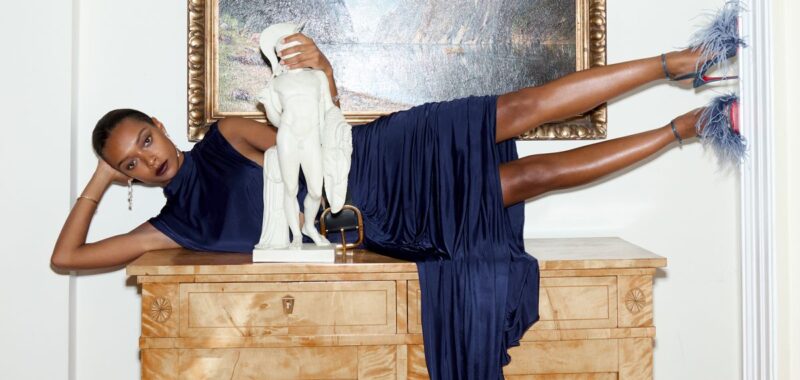Sophie Wilde spends a lot of time in the air. Born and raised in Sydney, Australia, the 26-year-old actor is still technically based in the sun-soaked coastal city. However, her jam-packed international schedule often presents a different reality, braving the 24-hour odyssey to jet to Europe and back with daunting frequency. Thankfully, for the moment, we’ve found ourselves in the same time zone mere miles apart: Wilde in East London and myself in South. “I’ve been here for two weeks,” she tells me. Then we’re off to Venice, then back home to Syd, then I come back for Paris Fashion Week and then back to Oz and then back here again,” she lists off with a laugh. When I ask if the choice to stay in her hometown is intentional, perhaps one with grounding benefits, she replies, “I mean, it’s totally impractical. It’s getting to the point now where I’m like, you simply must move… but there is something nice about the comfortability of slipping back into a group of people who know you and not really having to exert yourself socially when you have to do that so much for work.”
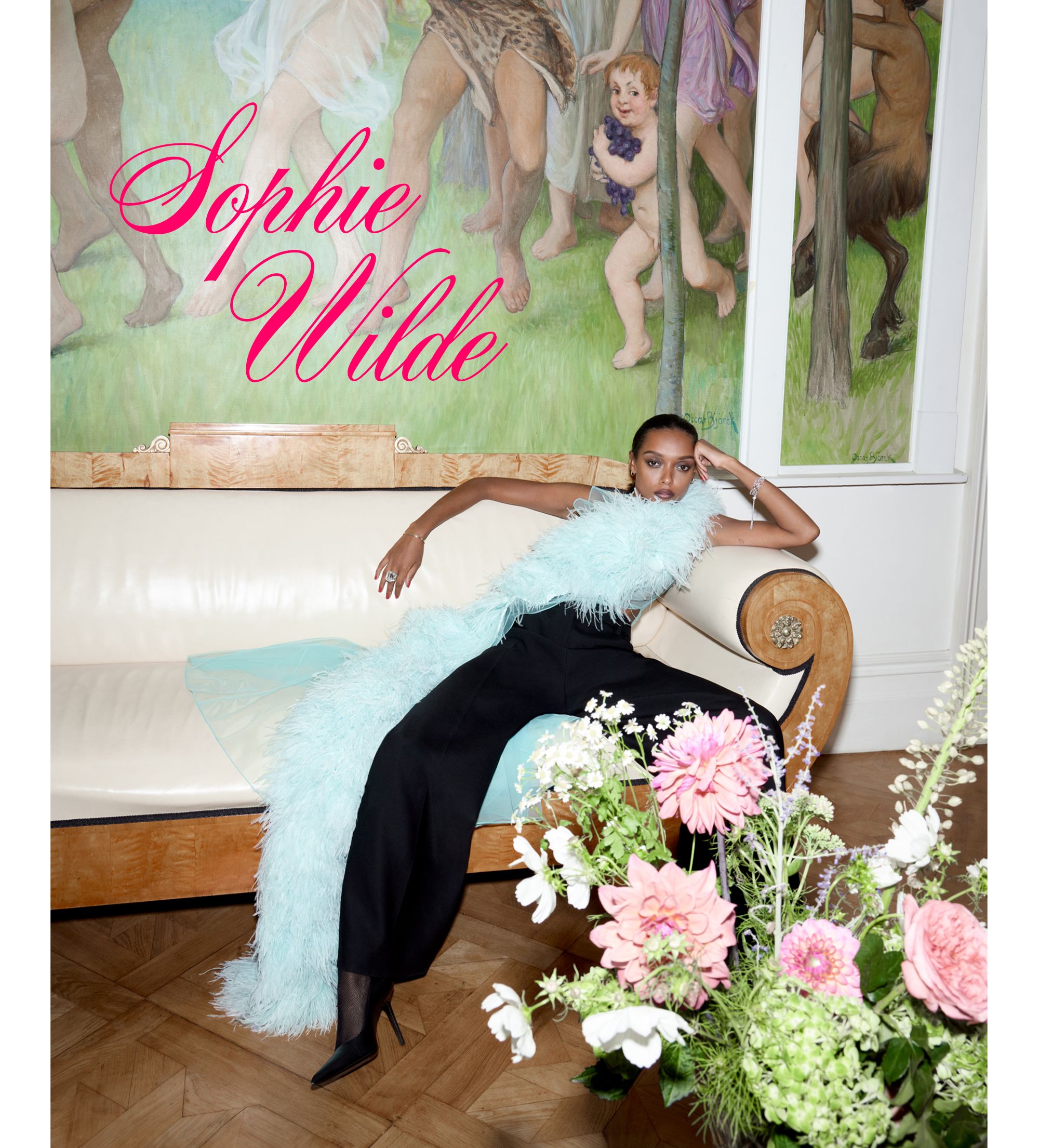
(Image credit: Claire Rothstein Styling: Top and Trousers, David Koma; Heels Michael Kors; Necklace and Ring Swarovski; Earrings, Sky Diamond; Bracelet Messika)
It’s hard to believe Wilde only graduated from drama school in 2020. In the handful of years since she took her first steps into the industry, and in the midst of a global pandemic, she’s already helmed her own Netflix show with Everything Now and starred in one of A24’s highest-ever grossing films with Talk to Me. This year alone, she’s been nominated for the EE BAFTA Rising Star Award, anointed as one of two Trophée Chopard recipients at the Cannes Film Festival, won an AACTA (the Australian equivalent to the BAFTAs) for Best Acress, and a Logie. Plus, she’s been named a Loewe darling. “I think my younger self would just be like… what? I haven’t even processed it in a lot of ways, it’s been so surreal,” she admits.
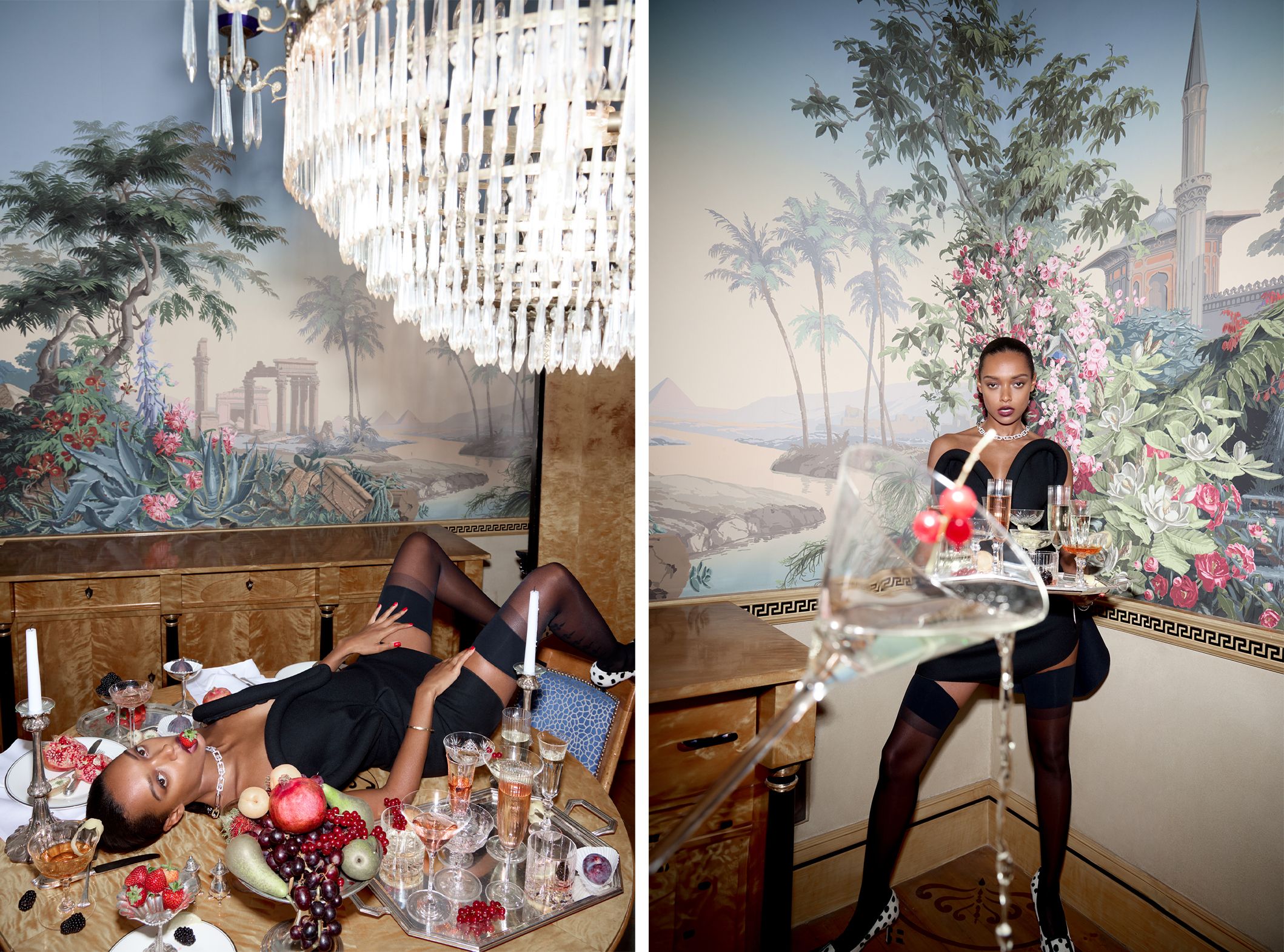
(Image credit: Claire Rothstein Styling: Dress and Socks, Victoria Beckham; Heels, Manolo Blahnik; Necklace; Messika)
Starry-eyed in the most literal sense, Wilde is a striking and effortlessly editorial presence both on and off-screen, but deeper than that, she brims with a rawness and sensitivity. Whether she’s embodying the most extreme of scream queens or intensely vulnerable of teenagers, her ability to bring humanity and heart to her roles has made her a thrilling new face to watch. Over Zoom though, she’s disarmingly laid-back; not extroverted but comfortable and warm, with a casual smattering of swear words tumbling out in that distinctly Aussie way.
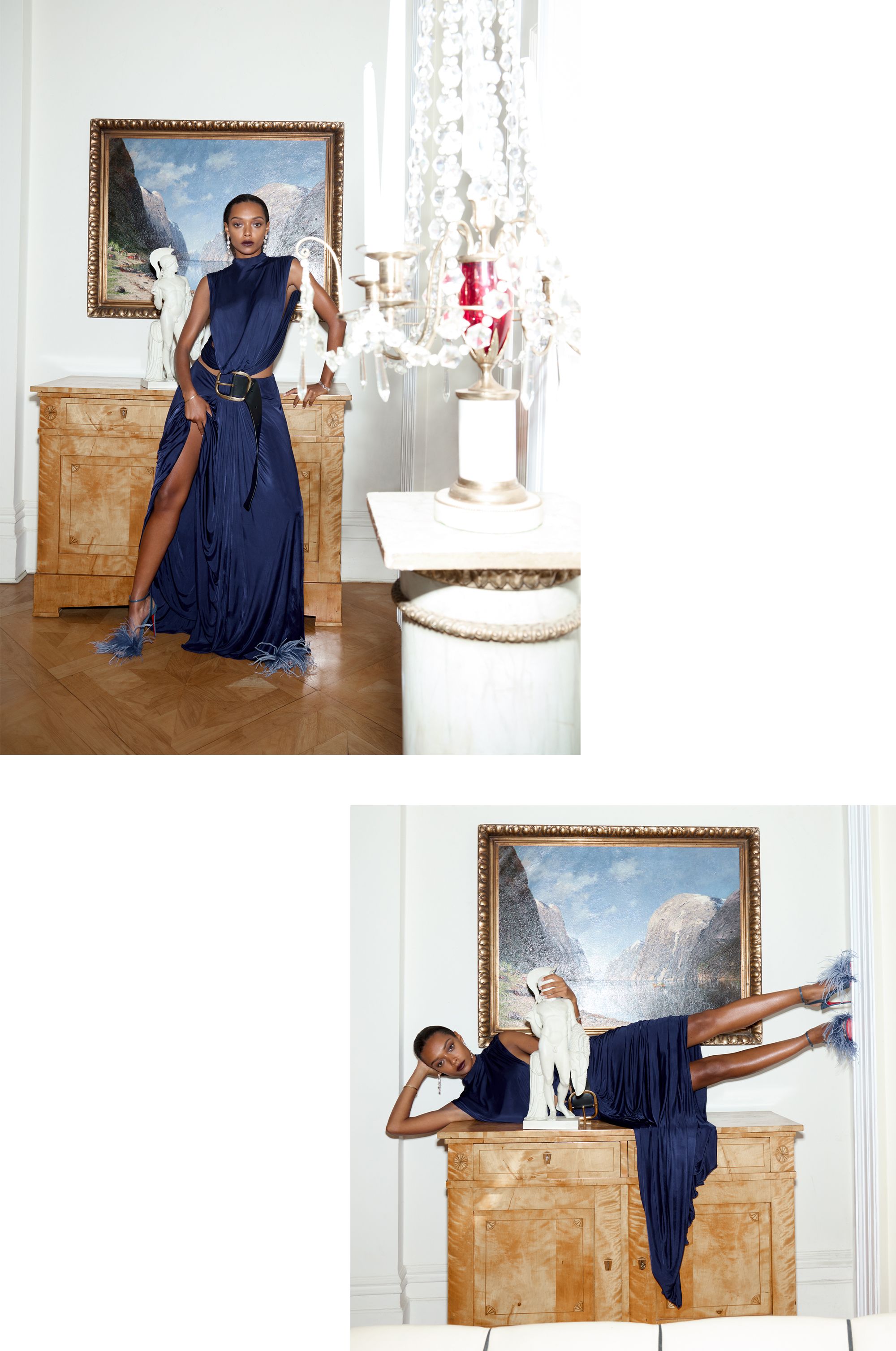
(Image credit: Claire Rothstein Styling: Dress, Loewe; Heels, Louboutin; Bracelet, Messika; Earrings, Loveness Lee)
Wilde’s love affair with film is a pretty storybook one, beginning with an Audrey Hepburn VHS box set and a dream. “I watched Roman Holiday and there was something about the feelings it evoked in me, that final scene. I was just so mesmerised.” From that point on, she had a one-track mind, taking up acting classes from the age of five and modelling gigs as a teen, before attending a performing arts high school in her hometown of Newtown and then studying acting at Australia’s National Institute of Dramatic Art. “I was very, very shy when I was younger, but I was always liberated in acting; it was almost like that was where [my] extroverted side could flourish.”
A self-proclaimed lifelong bookworm, if there were a fictional character she’d love to play, it would probably be Elizabeth from Pride and Prejudice. “I don’t know, I was a weird kid, I was really into classical shit,” she laughs. We take a moment to gush about the iconic “Mr Darcy hand flex” in the 2005 film adaptation, a moment filled with so much physical tension that it has a dedicated subreddit. Wilde growls, “Oh… my… god… the hand! My best friend just went through a breakup and we watched it, I think, maybe fifteen times.”
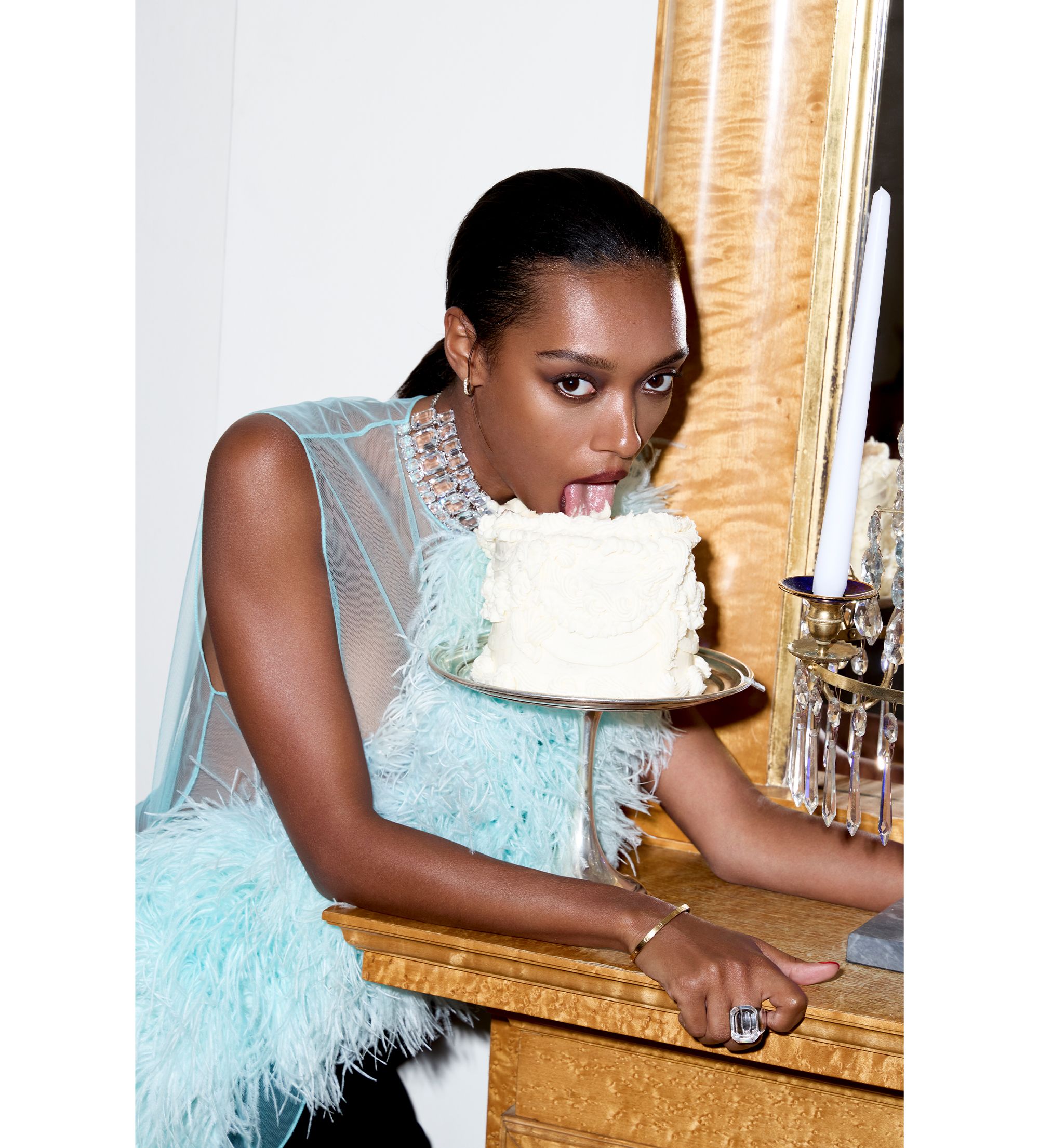
(Image credit: Claire Rothstein Styling: Top and Trousers, David Koma; Heels Michael Kors; Necklace and ring Swarovski; Earrings, Sky Diamond)
Many figures Wilde considers formative come from these often wistful and sometimes chaste worlds of period dramas and glittering Hollywood tales. She also cites My Fair Lady and Jane Eyre as huge early inspirations. But in her own work, Wilde is at the epicentre of a new wave of leading ladies, challenging and redefining modern girlhood and identity with their refreshingly complex depictions.
Everything Now finds her character Mia in the first moments of reintegration into society after a nine-month stint in a rehab facility for an eating disorder. Created by Ripley Parker, the 23-year-old daughter of actress Thandiwe Newton and screenwriter Ol Parker, the show cut through a saturated stream of ensemble coming-of-age dramas with a true young, unrepentant voice. Throughout the first season, Wilde hits every colour on the emotional spectrum with razor-sharp precision as its imperfect heroine.
Mia resonated so heavily with her audience precisely because of her contradictions: she’s angry and she’s loving, she’s in pain but she’s also charismatic, she’s irreverent yet insecure, she’s destructive but she’s trying. It’s a visceral yet deeply humanising portrait of what has long been deemed untouchable subject matter.
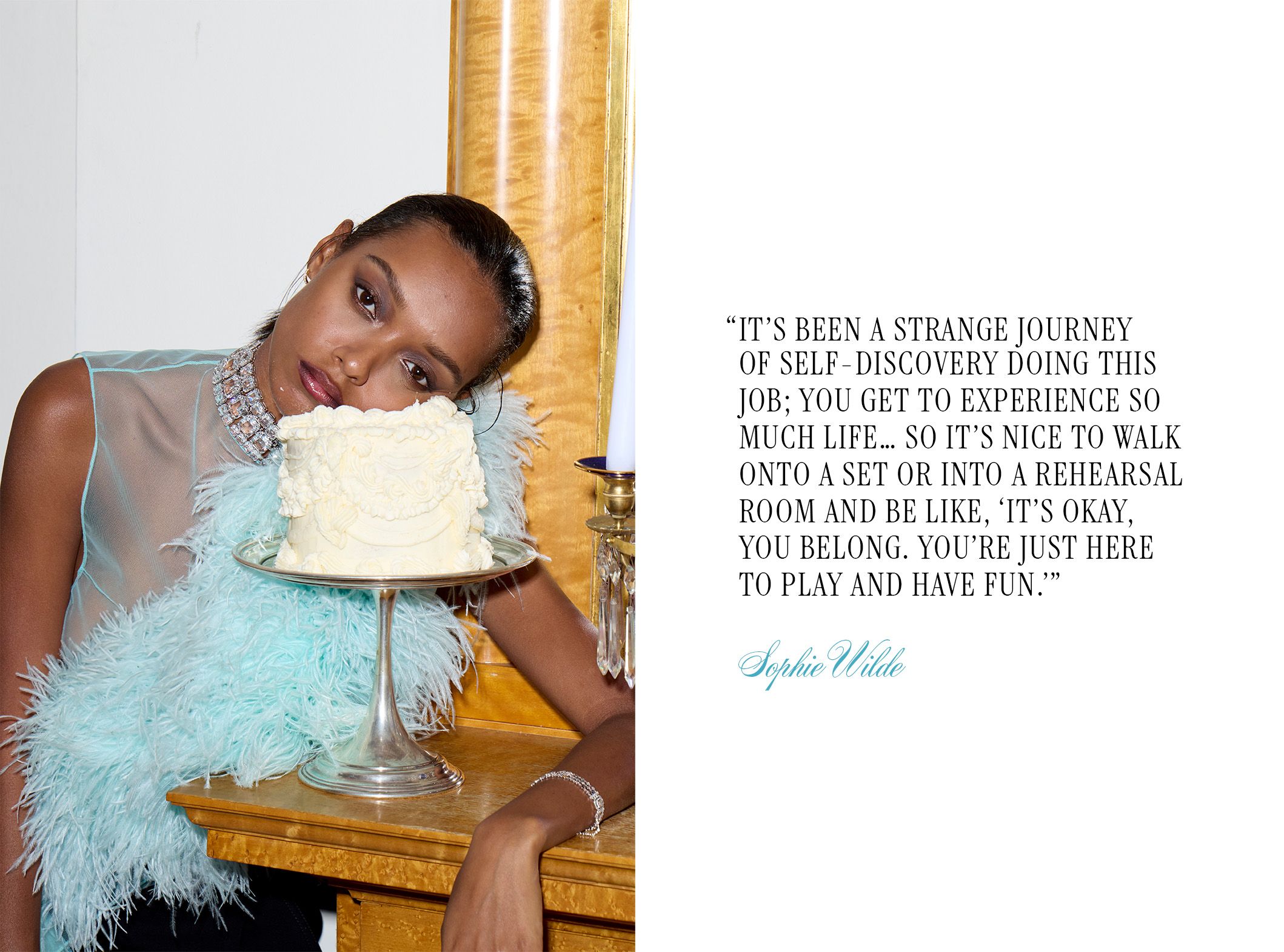
(Image credit: Claire Rothstein Styling: Top and Trousers, David Koma; Heels Michael Kors; Necklace and Ring Swarovski; Earrings, Sky Diamond; Bracelet Messika)
Right before our call, Wilde was at lunch with co-star Niamh McCormack who plays Allison. She tells me that it was the first time they had seen each other since news broke that the show would not be renewed. She pulls a quick emoji-level pout but says, “It’s such a beautiful show and we really became such a close family making it, so it’s always disappointing when you want to come back together and work on something magical and you don’t get the opportunity. But I understand these things happen.”
Her first feature role in Talk to Me centred around a similarly nuanced character, funnily enough also named Mia, but her arc sat at a different extreme. This time Wilde played a grieving teenager who looks directly to hell for consolation and suffers brutal consequences. It’s hard to reconcile the charming, giggly woman in front of me with the feverish wild card that is the lead in this horror; a writhing and uncontainable force. But that’s all part of the beauty for Wilde. “I think [acting] affords [the] experience [of] intense emotions you might not be allowed to experience in your everyday life. There’s something cathartic about that,” she says.
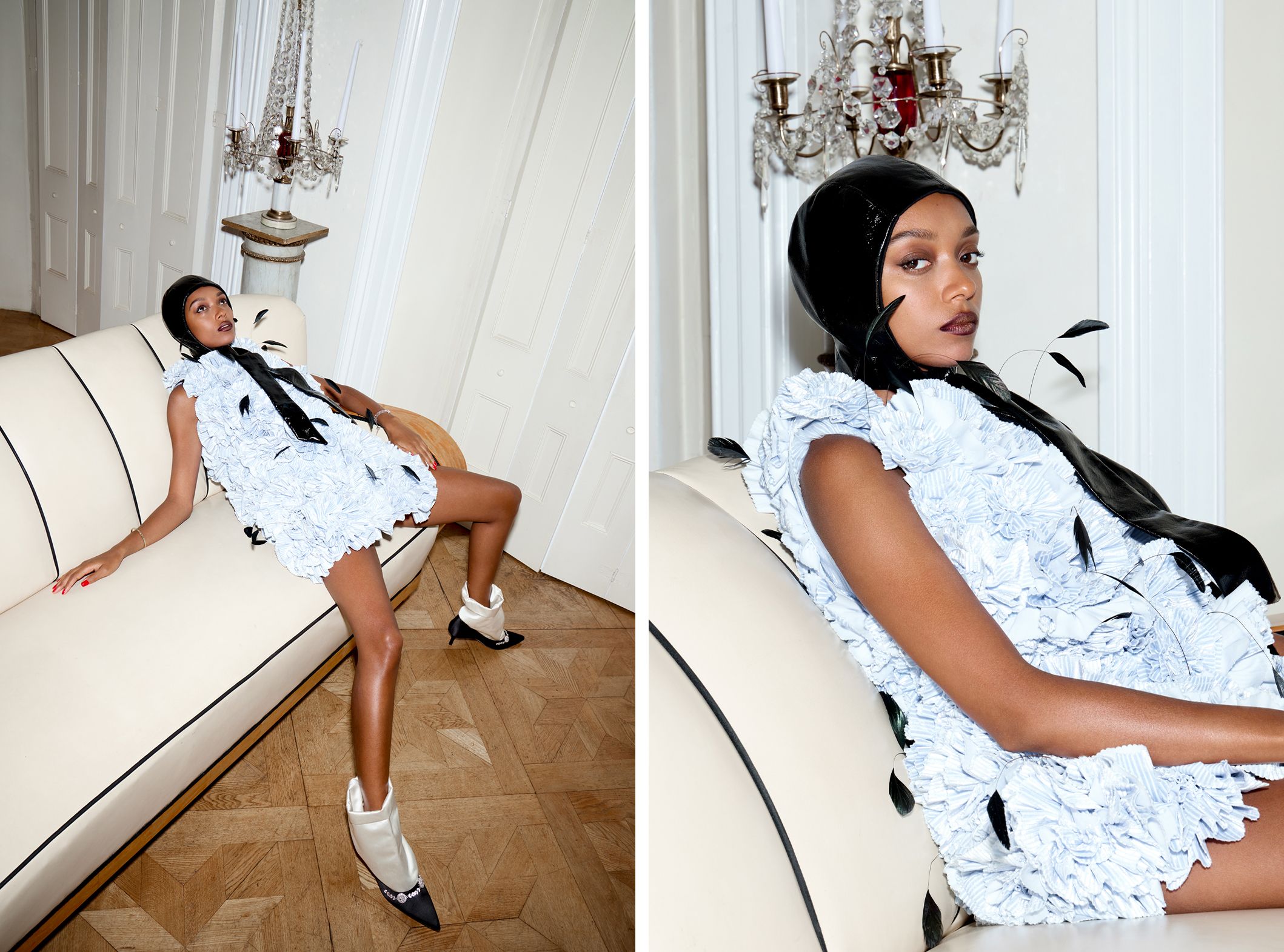
(Image credit: Claire Rothstein Styling: Dress, SHUSHU/Tong; Boots, Manolo Blahnik; Bangle, Messika; Bonnet, Noel Stewart)
Admittedly, she was not an avid watcher of the genre herself. “I… hate horror films,” she says, guiltily. “I mean, I love them but I can’t watch them. I have an overactive imagination so I genuinely believe that I’m being possessed or haunted.” It’s a skill that clearly came in handy when shooting the film though. I pull up a fan comment on one of her Instagram posts about the indie horror, a review that raved, “This movie was so good, we had to pray afterwards,” and Wilde bursts out laughing. “I never realised how communal it is,” she says of attending Talk to Me‘s screenings and premieres, filled with screams and laughter. “Having that sort of intense emotional experience with other people, we don’t necessarily get that in life very often. It’s like a beautiful sense of camaraderie.”
With her latest project, A24’s erotic thriller Babygirl, Wilde fortunately gets to look on at someone else’s bad decisions for once, as executive assistant to Nicole Kidman’s high-powered exec, whose world unravels as the result of a spicy affair with a company intern played by Harris Dickinson. Though it’s not inherently romantic, the relationship between PA and boss comes with its own unique intimacy and imbalances. To nail this rhythm, Wilde took to studying the closest real-life case study she could find. “I really liked to watch our director [Halina Reijn] and her PA. A lot of the time I’d be sitting in the corner sort of observing their dynamic, like a total creep,” she laughs.
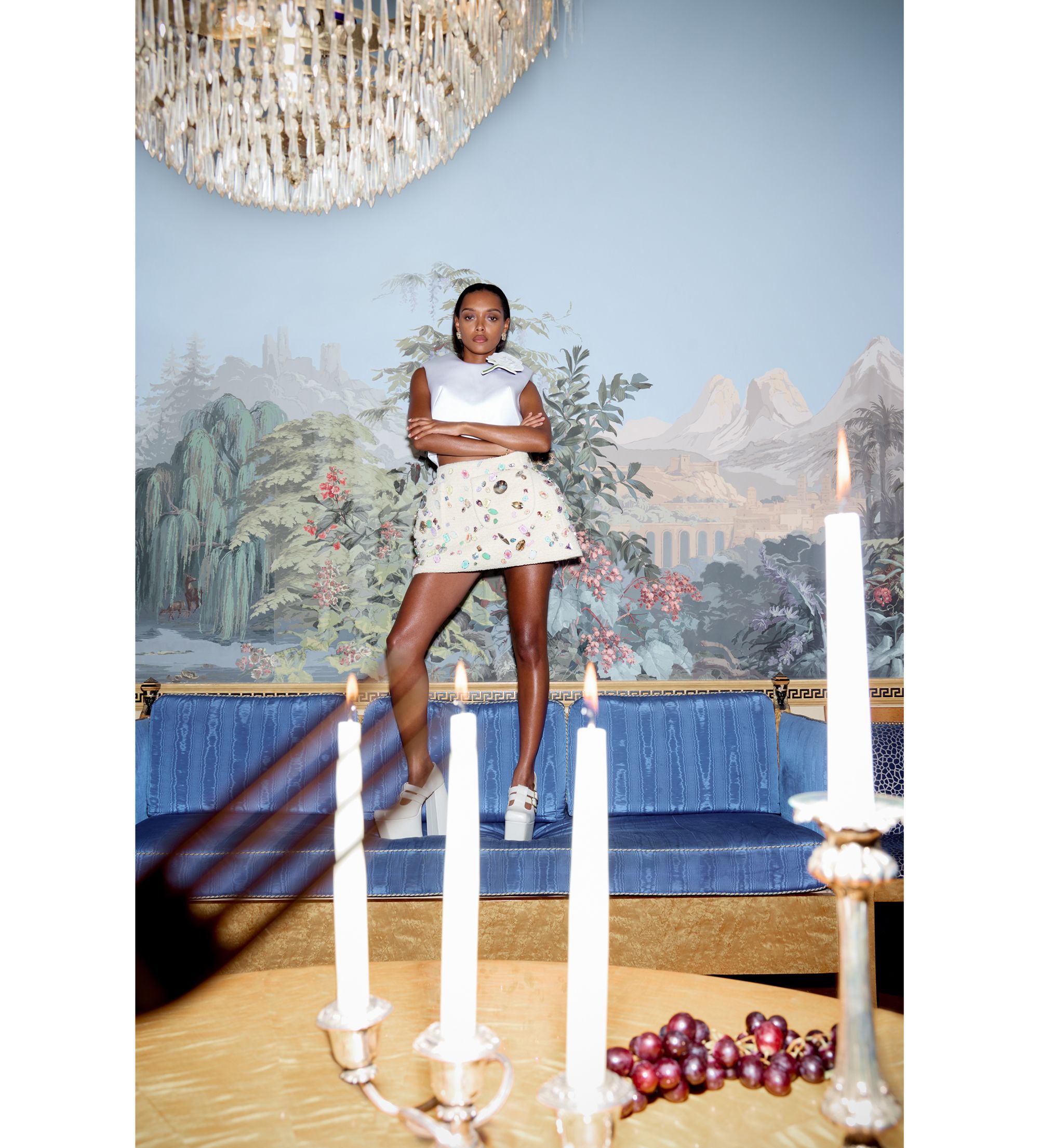
(Image credit: Claire Rothstein Styling: Top and Skirt, Marc Jacobs; Heels, Roker; Earrings, Loveness Lee; Bangle Sophie’s Own)
First-look trailers for the film have already created a huge buzz, sending people almost feral in anticipation with glimpses of a feature that explores and exposes some of the thornier, unspoken aspects of sexuality and power dynamics. “I genuinely think that Halina has crafted a really important film—I’m obsessed with it,” Wilde gushes. “It’s a really interesting interrogation into what it means to be a woman, how we relate to our sexuality and how we take autonomy over our sexual journeys, desires, wants and needs in a relationship.” She rounds off by adding, “Fuck, man, Nicole was just incredible. I’m so excited for people to see it.”
Shooting for the first time in the U.S. across from an acting titan (and fellow Australian), the gravity of this moment has not been lost on Wilde, who admits her perfectionist tendencies contributed to some “big job” jitters. “But I had a really beautiful conversation with my mum. She was like, ‘Why don’t you just take it off yourself and take it as a learning experience? Watch these people who you really admire, see what they do and how they do it,'” she says. “That was the greatest advice ever because I felt like I really did that, and I genuinely learnt so much from them. It was a masterclass.”
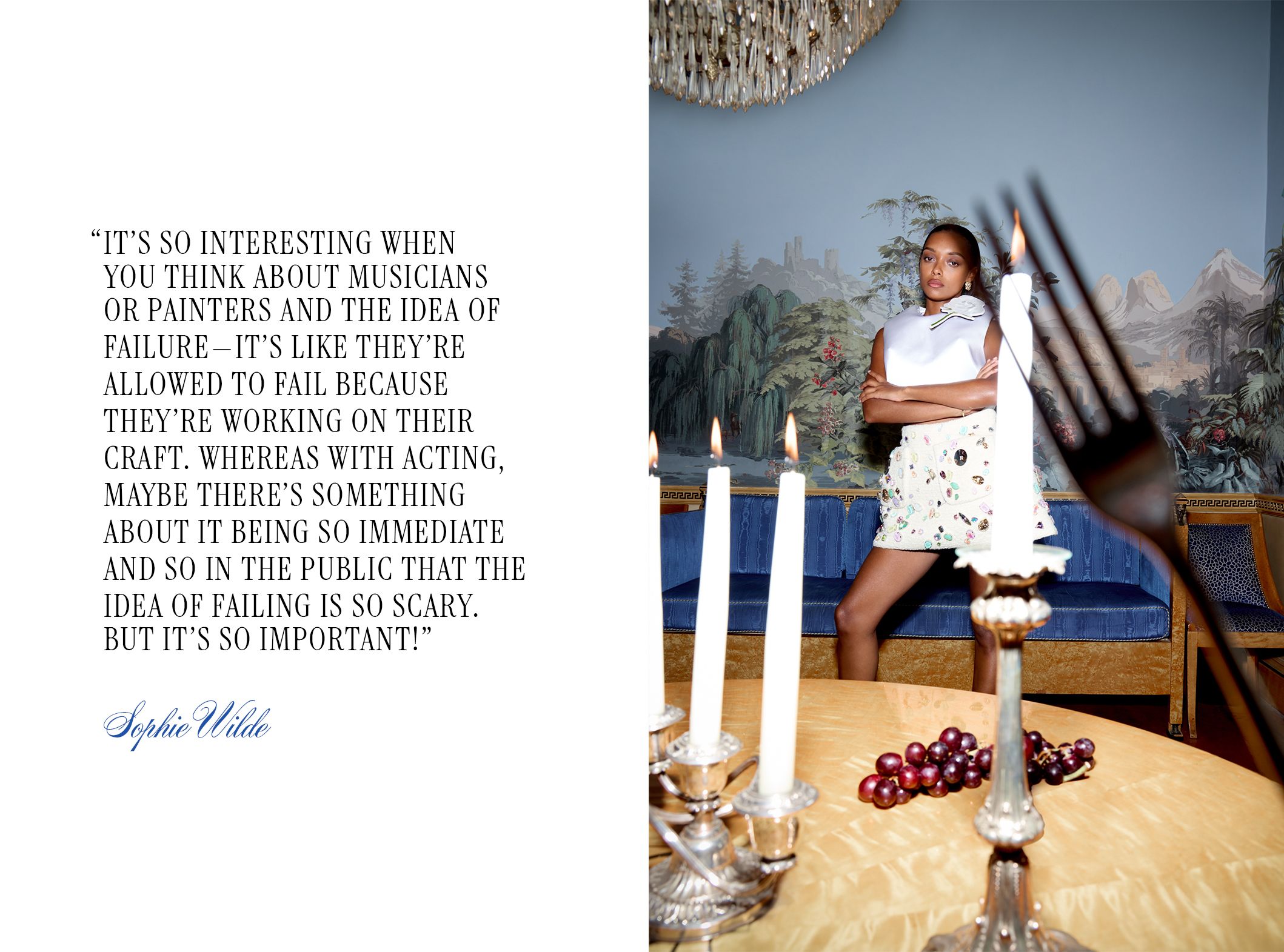
(Image credit: Claire Rothstein Styling: Top and Skirt, Marc Jacobs; Heels, Roker; Earrings, Loveness Lee; Bangle Sophie’s Own)
With such a rapid ascent follows a hypervisibility that’s been present pretty much since Wilde’s first appearances on screen. Grappling with that many eyes on you can come with pressure to be beyond perfect, or worse, imposter syndrome—both of which Wilde names as challenges she’s trying to overcome. “It’s so interesting when you think about musicians or painters and the ideas of failure, it’s like they’re allowed to fail because they’re working on their craft,” she says. “Whereas with acting, maybe there’s something about it being so immediate and so in the general public that the idea of failing is so scary. But it’s so important!”
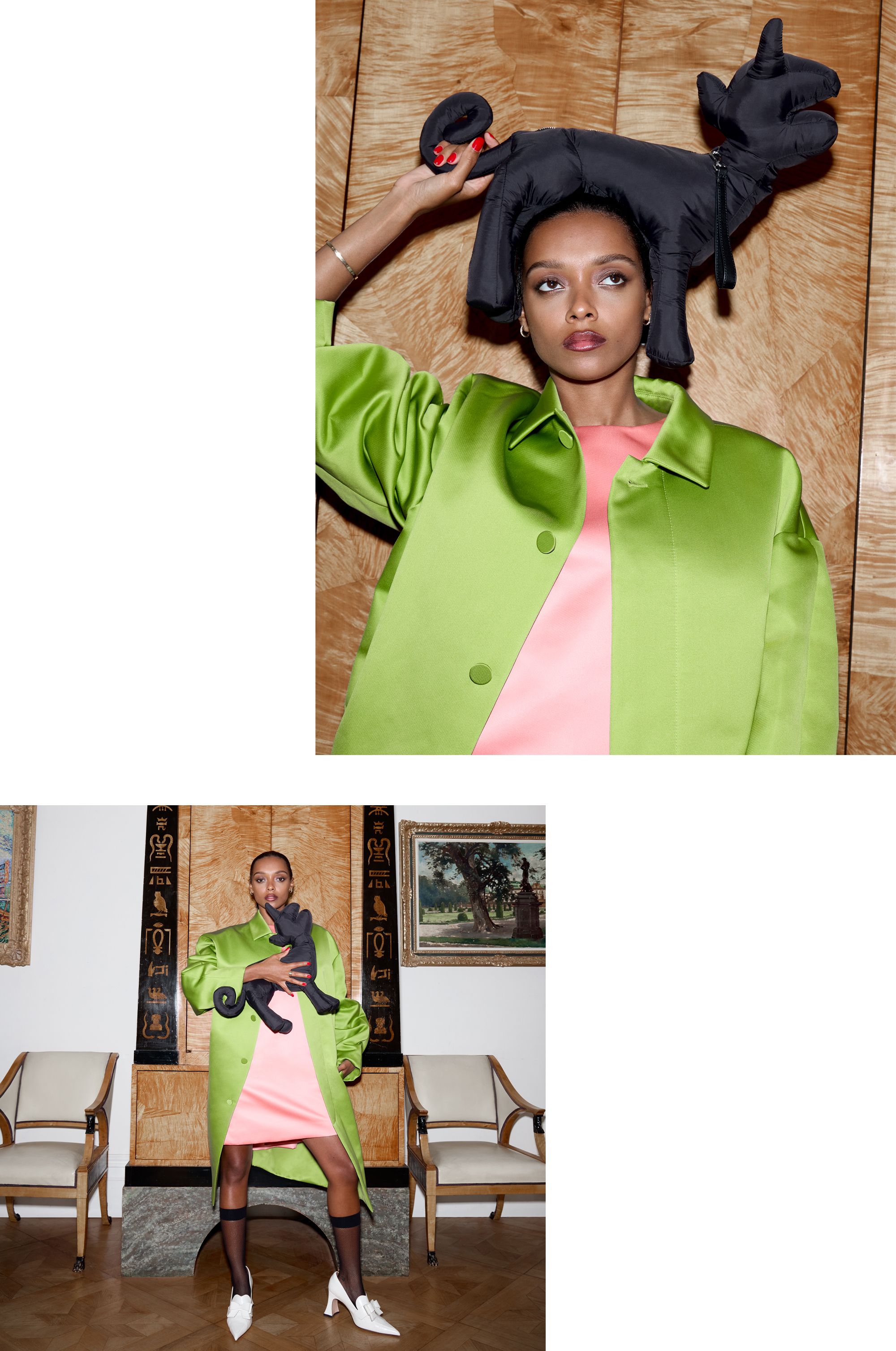
(Image credit: Claire Rothstein Styling: Coat and Dress, Philosophy; Socks, Wolford; Shoes, SHUSHU/Tong; Bag, Simone Rocha; Ring and Earrings, Sky Diamond)
If Hepburn made her fall in love with acting in theory, what made her fall in love with it in practice? “I think it’s the play of it all. You’re really connecting with your inner child. And it’s silly, it’s so silly. I’m inherently a very unserious person, and maybe not everyone, but [amongst] all my actor and drama school friends, there’s this sort of goofiness to us all and this childlike playfulness,” she says. Being able to reframe work as not just a service to be delivered flawlessly but as a rich space for play and experimentation—to return to the whimsy of being a student of the craft—has been a crucial shift in entering this next stage of her career.
She says she’s not always there but she can feel herself moving towards it, inch by inch, not unlike many of her roles. “I feel like [with] a lot of the characters I’ve played, there’s a general theme of coming into oneself. It’s taught me a lot to learn that and to appreciate the parts of myself that I didn’t like or felt insecure about. “It’s a strange journey of self-discovery, doing this job. You get to experience so much life… so it’s nice to walk onto a set or into a rehearsal room and be like, it’s okay, you belong. You’re just here to play and have fun.”
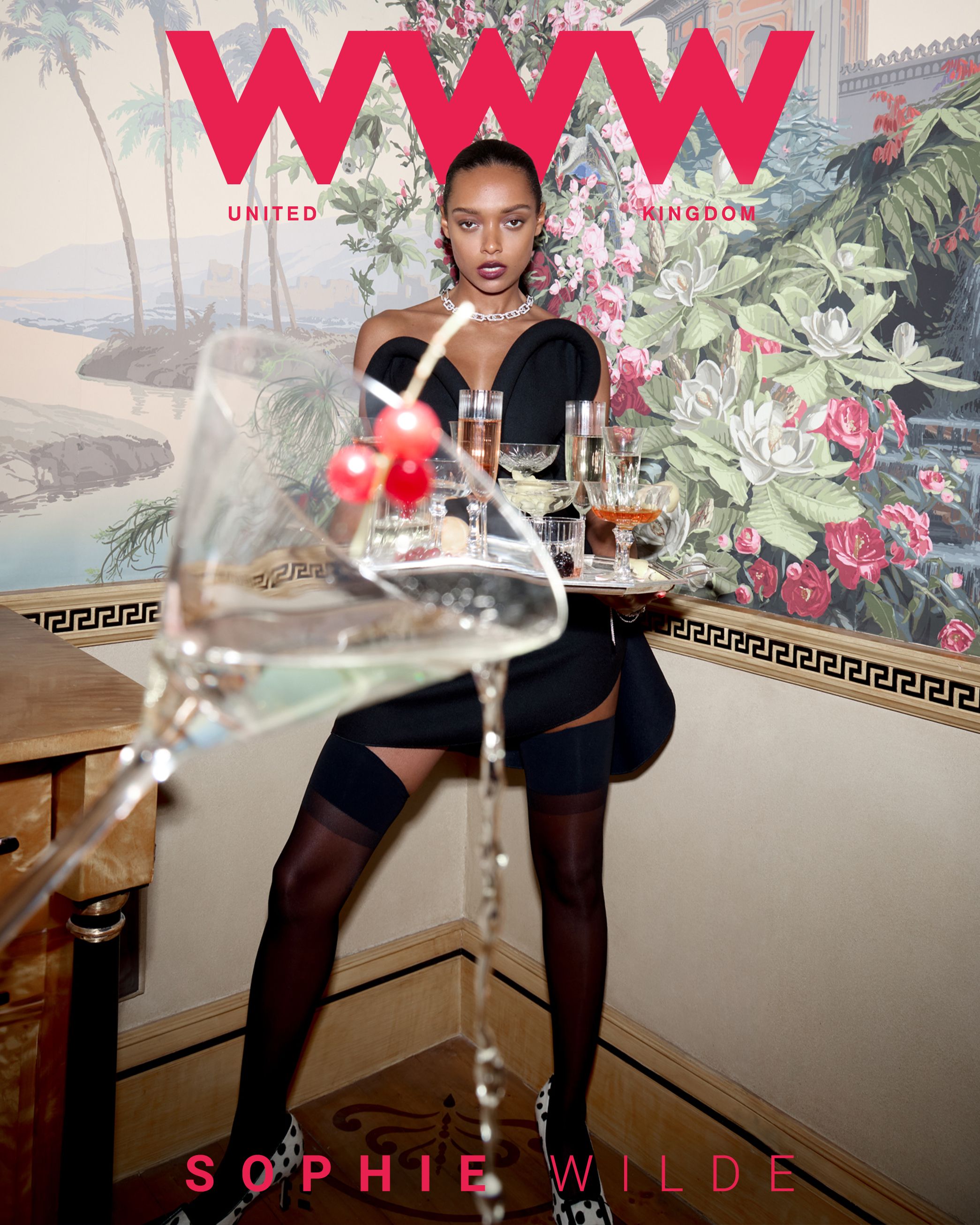
(Image credit: Claire Rothstein)
Photographer: Claire Rothstein
Hair Stylist: Kieron Lavine
Makeup Artist: Bari Khalique
Manicurist: Rebecca Jade Wilson
Stylist: Remy Farrell
Styling Assistant: Brittany Davy
Photography Assistant: Karina Barberis
Digital Technician: Michael Furlonger
Prop Stylist: Nicholas Rogers
Art Director: Natalia Szytk
Editor-in-Chief: Hannah Almassi
Editor: Natty Kasambala
Copy Editor: Georgia Seago
Video: Emily Shannon
Executive Director, Entertainment: Jessica Baker
Production: Town Productions
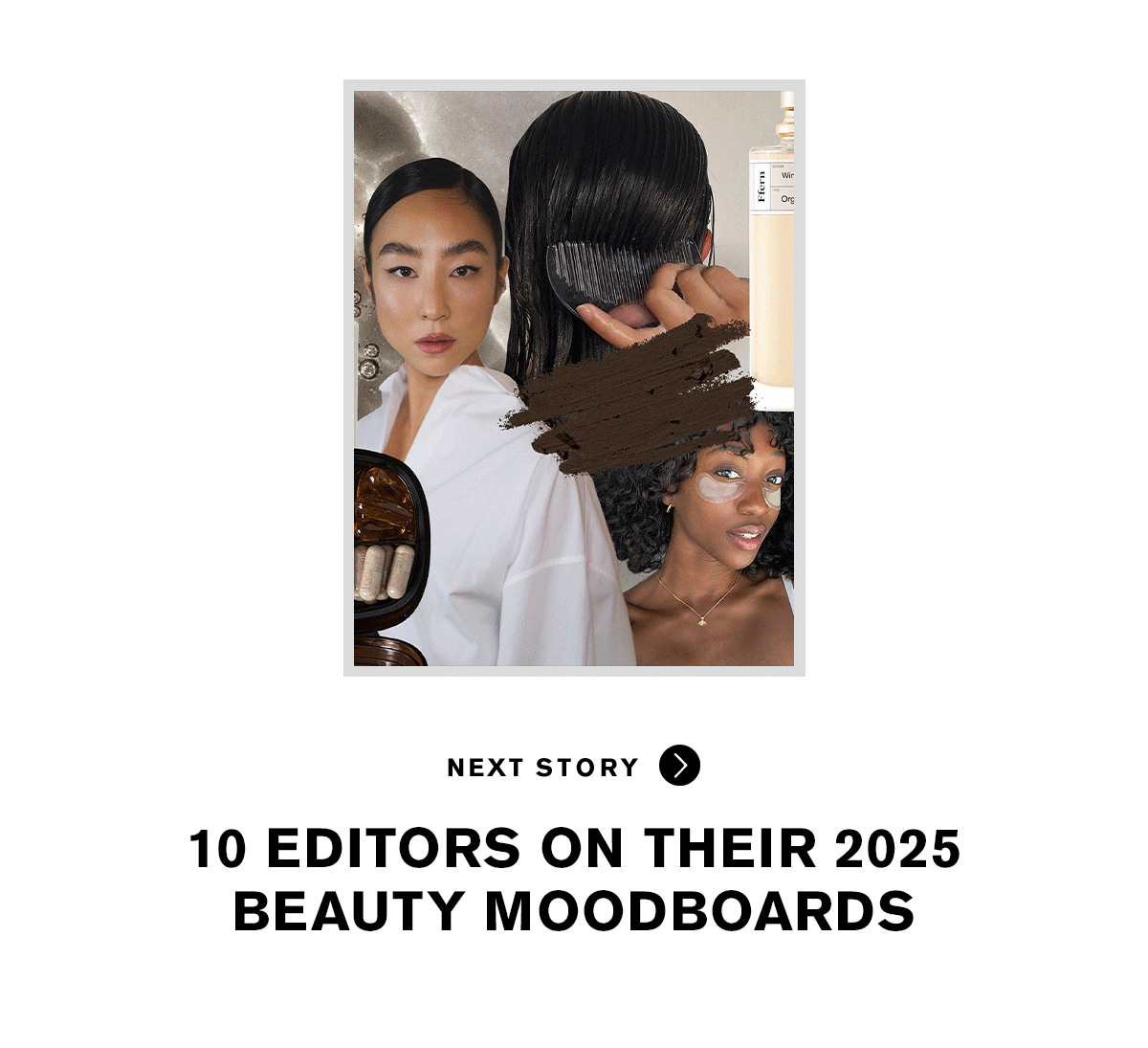
(Image credit: Future)

